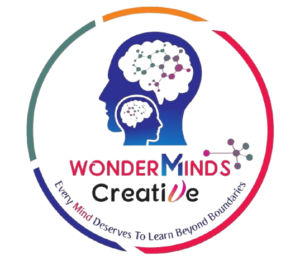Service Details

Behavior Therapy: An Overview
What is Behavior Therapy?
Behavior therapy is a type of psychological treatment that focuses on changing undesirable behaviors and reinforcing positive ones. It is based on the principles of behaviorism, which suggest that behaviors are learned and can be unlearned or modified through the right interventions. This approach is commonly used to address a wide range of issues in children, including behavioral problems, anxiety, ADHD, and developmental disorders like Autism Spectrum Disorder (ASD).
Why is it Important?
Behavior therapy is crucial because it provides children with the tools they need to manage their behaviors effectively. By addressing the root causes of negative behaviors and teaching alternative, positive behaviors, this therapy helps children function better in their daily lives, both at home and in school. It also empowers parents and caregivers with strategies to support their child’s behavioral development.
Who Can Benefit?
Behavior therapy is beneficial for children who:
Exhibit challenging behaviors: Such as aggression, tantrums, or defiance.
Have difficulty with attention or impulse control:
Often seen in conditions like ADHD.
Experience anxiety, depression, or OCD:
Where certain behaviors are linked to emotional distress.
Have developmental disorders: Such as Autism Spectrum Disorder, where behavior therapy can help with social skills and reducing disruptive behaviors.
What Does Therapy Involve?
Behavior therapy typically involves structured sessions with a trained therapist who works with the child and, often, their parents or caregivers. The key components of behavior therapy may include:
Behavioral Assessment :
Identifying the specific behaviors that need to be changed and understanding the triggers and consequences that maintain them.
Behavior Modification Techniques:
Using positive reinforcement to encourage desired behaviors and consequences or time-outs to reduce negative behaviors.
Skills Training: Teaching children coping strategies, problem-solving skills, and social skills to help them manage challenging situations more effectively.
Parent Training:
Guiding parents on how to implement behavior management strategies at home, ensuring consistency in the child’s environment.
Cognitive-Behavioral Techniques: For older children, integrating cognitive strategies to help them understand and modify the thoughts that influence their behaviors.
How Does It Help?
Behavior therapy can lead to significant improvements in a child’s life, including:
Better Behavior Management:
Children learn to replace negative behaviors with positive ones, leading to improved interactions at home, school, and in social settings.
Enhanced Emotional Regulation:
Through understanding and managing their emotions, children can reduce anxiety, stress, and other emotional challenges that may lead to behavioral issues.
Improved Social Skills:
As children learn to behave more appropriately, their relationships with peers and adults often improve, leading to better social integration.
Greater Academic Success:
With improved behavior and focus, children are better equipped to succeed in school, both academically and socially.
Increased Confidence:
As children learn to manage their behavior, they often develop greater self-esteem and confidence in their ability to handle various situations.
In Conclusion, behavior therapy is a powerful tool for helping children overcome behavioral challenges and develop the skills they need to thrive. By focusing on changing specific behaviors and reinforcing positive ones, this therapy supports children’s overall development and well-being.
Frequently Asked Question
We offer a wide range of therapies, including occupational therapy, speech therapy, behavioral therapy, and sensory integration therapy.
If your child is showing delays in developmental milestones, difficulties in communication, or behavioral challenges, a consultation can help determine if therapy is beneficial.
The first session typically involves an assessment to understand your child's needs, followed by setting goals and creating a personalized treatment plan.
The duration of therapy varies depending on the child's individual needs and progress, and will be regularly reviewed by the therapist.
Yes, we provide regular progress reports to keep you informed about your child's development and the effectiveness of the therapy.
We offer guidance and activities for parents to reinforce therapy goals at home, ensuring consistent progress.
While it’s not always required, parental involvement is encouraged as it can enhance the therapy’s effectiveness and support the child’s development.
We offer both one-on-one and group sessions, depending on what is most appropriate for the child’s needs.
Our therapists are well qualified professionals with specialized training and experience in their respective fields.
Coverage varies by insurance provider, and we can assist you in understanding your benefits and how they apply to our services.
